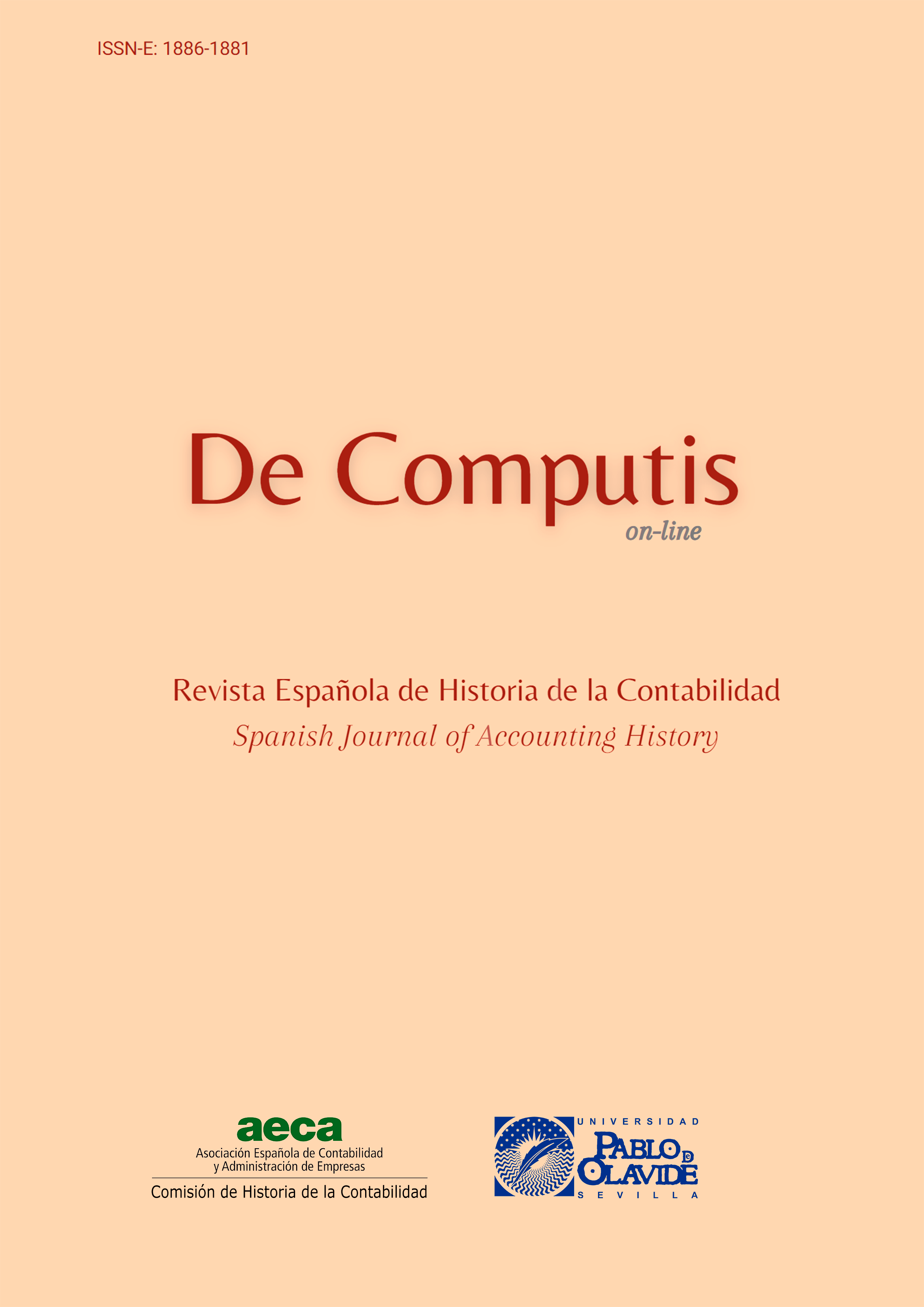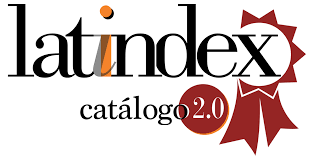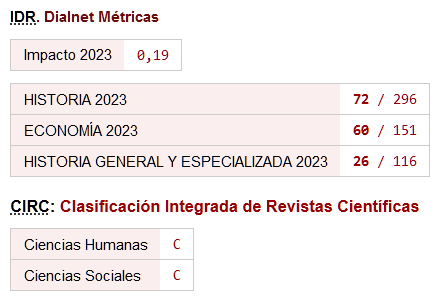From ‘system approach’ to system ontology
An historical perspective
DOI:
https://doi.org/10.26784/issn.1886-1881.22.1.12026Keywords:
System Research, System Ontology, System Hierarchy, System Boundaries, Information, Entity Economics, Institutional Economics, Management, Accounting, Artificial Intelligence, Quantum Reality, Quantum Computers, Duality solutionAbstract
The ‘system approach’ grew up of a holistic view and thus is not bound to a single discipline or a limited number of them. The systems notion to distinguish clearly between object-language and meta-language or Godel’s incompletability theorem lead to the notion of ‘systems hierarchy’ in which the value of some propositions can be determined only by looking at the pertinent meta-system. Wittgenstein’s emphasis that a language game ought to be seen in the context of social activity is evidence that a system should not be looked at in isolation but must be analysed in its environment. In Italian Economia Aziendale, ‘entity economics’, this approach has been applied since long time by the two giants of economic thinking, Fabio Besta and Gino Zappa, and more recently by the foundational works of many other Authors.
The hierarchies in terms of information needs are connected to decisions and decisions are related to objectives. In the ‘evolutionary hierarchy’ it is relevant to know where a system begins having built-in preferences, thus exercise value judgements and consequently dealing with an inner aspect, consciousness in the broader sense, taking into account that in any system the interaction between the individual components seems to be leaded by the information.
Beyond the mere ‘traditional’ ontological ‘entity economics’, economia aziendale, management and accounting literature, there emerges a very different computer oriented ontological literature, which is related to the relatively new branch of systems ontology, that is to computerize the process of knowledge formation and dispersion, for which it is essential the development of quantum computers beyond the present proto-types.
Downloads
References
Accoto, C. (2024) Il pianeta latente. Provocazioni della tecnica, innovazioni della cultura, Milan: Egea.
Ackoff, R. L. (1962) Scientific method. Optimizing applied research decisions, New York: Wiley.
Ackoff, R. L. (1963) ‘A general system theory and systems research contrasting conceptions of systems science’, General Systems, 8: 117-24.
Amaduzzi, A. (1956) Il Sistema dell’impresa nelle condizioni prospettiche del suo equilibrio, Rome: Signorelli (first ed. 1948).
Amaduzzi, A. (1978) L’azienda nel suo sistema e nei suoi principi, Turin: Utet (first ed.1953).
Amodeo, D. )1965) Ragioneria generale delle imprese, Naples: Giannini.
Aversa, P., Bettinelli, C., Levanti, G., Mocciaro Li Destri, A., Picone, P. M. (2024) ‘Leveraging intersections in management’, Journal of Management and Governance, vol. 28, 3: 687-705. https://doi.org/10.1007/s10997-024-09710-2
Azzini, L. (1982) Istituzioni di economia d’azienda, Milan: Giuffrè Editore (first ed. 1980).
Bertalanffy, L. von (1968) General system theory, New York: George Braziller.
Bertini, U. (1990) Il sistema d’azienda. Schema di analisi, Turin: Giappichelli.
Besta, F. (1891-1916) La ragioneria, vols. 1, 2, 3, Milan: Vallardi.
Bianchi, T. (1967) Costi, ricavi e prezzi nelle banche di deposito Milan: Giuffrè Editore.
Bronowski, J. The ascent of man, Boston, MA: Little, Brown and Co.
Bunge, M.(1974) Treatise on basic philosophy – Vol. 2, Semantics II – interpretation and truth, Dordrecht-Holland: D. Reidel. https://doi.org/10.1007/978-94-010-9922-6
Bunge, M. (1977) Treatise on basic philosophy –Vol. 3, Ontology I: the furniture of the world, Dordrecht-Holland: D. Reidel. https://doi.org/10.1007/978-94-010-9924-0
Canziani, A (2024) ‘Le fondazioni dell’economia aziendale’, in Anselmi et.al., Scritti in onore di Umberto Bertini, vol.I, Milan: Franco Angeli.
Carnap, R. (1934) The logical sintax of language, London: Kegan Paul.
Cattaneo, M. (1959) Le misurazioni di azienda: aspetti di errore, di indeterminazione, di incertezza, Milan: Giuffrè Editore.
Cattaneo, M. (1969) Economia delle aziende di produzione, Milan: Etas Kompass.
Cassandro, P. E. (1968) Le aziende. Principi di ragioneria, Bari: Cacucci.
Churchman, C. W. (1968), The systems approach, New York: Dell Pub. Co.
Churchman, C. W. The design of inquiring systems, New York: Basic Books.
Coda, V. (1963) Introduzione alle valutazioni dei capitali economici d’impresa, Milan: Giuffrè Editore.
Colletti, N, (1964) Programmazioni e scelte in economia aziendale.
Dell’Amore, G. (1938) Il credito fondiario in Italia), Milan: Giuffrè Editore.
Dell’Amore, G. (1940) I mercati a termine di borsa delle merci, Milan: Giuffrè Editore.
Deutsch, D. (1985) ‘Quantum theory. The Church-Turing principle and the universal quantum computer’, Proceedings of the Royal Society of London; Series A, Mathematical and Physical Sciences, 400 (1818): 97-117.
Devine, C. T. (1985) Essays in accounting theory, Sarasota: American Accounting Association.
D’Ippolito, T. (1966) Istituzioni di amministrazione aziendale. L’azienda. Le discipline amministrative aziendali, Palermo-Rome: Abbaco.
Ferrero, G. (1968) Istituzioni di economia d’azienda, Milan: Giuffrè Editore.
Friedman, M. (1953) Essays in positive economics, Chicago: Chicago University Press.
Galassi, G. (1969) Concentrazione e cooperazione interaziendale, Milan: Giuffrè Editore.
Galassi, G. (1974) Misurazioni differenziali, misurazioni globali e decisioni d’azienda, Milan: Giuffrè Editore.
Galassi, G. (1978) Sistemi contabili assiomatici e sistemi teorici deduttivi. Prime proposizioni per una teoria generale della ragioneria, Bologna: Patron Editore.
Galassi, G. (1980) ’Capital-income relations. A critical analysis’, in Gino Zappa Founder of Concern Economics, Bologna, Accademia Italiana di Economia Aziendale: 23-49.
Galassi, G. (2021) ‘Systems of values, ethical systems, and sustainability. The economic social ‘entity’ values’, De Computis, Spanish Journal of Accounting History, June: 186-201. https://doi.org/10.26784/issn.1886-1881.v18i1.427, published also by agreement Rivista italiana di Ragioneria e di Economia Aziendale, 2021, 5-8: 170-185, DOI: 10.17408/RIREAGG050607082201.
Galassi, G. and Mattessich, R. (2015) ‘Some clarification to the evolution of the electronic spreadsheet’, American Accounting Association, Journal of Emerging Technologies in Accounting, 12, March: 1-7. DOI:10.23087Jeta-51114.
Galassi, G., see Mattessich and Galassi.
Gallo, A. M. (2024) Strategie e governance per una PA digitale tra artificial intelligence e public service, Milan: Franco Angeli.
Giannessi, E. (1960) Le aziende di produzione originaria, vol. I, Le aziende agricole, Pisa: Cursi.
Heisenberg, W. (1927) ‘Uber die Grundprincipien der ‘Quantenmechanik’, Forschungen und Fortsshritte 3: 83.
Ijiri, Y, (1982) Triple-entry bookkeeping and income momentum, Sarasota, Fla, American Accounting Association.
Ijiri, Y. (1989) Momentum accounting and triple-entry bookkeeping: exploring the dynamic structure of accounting measurements, Sarasota, Fla, American Accounting Association.
Javidan, A., Smacchia, M., Cipriano, M., Za, S. (2024), ‘A bibliometric analysis of Artificial Intelligence and decision-making’, Impresa Progetto. Electronic Journal of Management, 2: 1-26.
Katz, D. and Kahn R. L. (1966) The social psychology of organizations, New York: Wiley.
Lange, O. (1965) Wholes and parts, Oxford: Pergamon Press.
Masini, C. (1959) La dinamica economica nei sistemi dei valori d’azienda: valutazioni e rivalutazioni, Milan: Giuffrè Editore (first ed. 1955).
Masini, C. (1961) L’ipotesi nella dottrina e nelle determinazioni dell’economia di azienda, Milan: Giuffrè Editore.
Masini, C. (1978) Il sistema dei valori d’azienda. Un problema di calcolo economico nelle imprese. Razionalità e metodo, Milan: Giuffrè Editore.
Masini, C. (1979) Lavoro e risparmio. Economia d’azienda, Turin: Utet (first ed. 1968).
Mattessich, R. (1957) ‘Towards a general and axiomatic foundation of accounting. With an introduction to the matrix formulation of accounting systems’, Accounting Research 4: 328-55.
Mattessich, R. (1964) Accounting and analytical methods. Measurement and projection of income and wealth in the micro- and macro-economy, Homewood, IL.: R. D. Irwin (also translations in Japanese, German and Spanish).
Mattessich, R. (1978) Instrumental reasoning and systems methodology. An epistemology of the applied and social sciences, Dordrecht-Holland/Boston, MA: Reidel Publ. Co. https://doi.org/10.1007/978-94-010-9431-3
Mattessich, R., ed. (1991) Accounting research in the 1980s and its future relevance, Vancouver, BC: Canadian Certified General Accountants Research Foundation.
Mattessich, R. (1995) Critique of accounting. Examination of the foundations and normative structure of an applied discipline, Westport, CT, and London: Quorum Books.
Mattessich, R. (2014) Reality and accounting. Ontological explorations in the economic and social sciences, London and New York: Routledge. https://doi.org/10.4324/9780203798737
Mattessich, R. and Galassi, G. (2015) ‘On the interdependence of basic concepts: substance and space, time and change, and consciousness’, Process Studies Supplement 20: 1-17.
Mattessich, R. and Galassi, G. (2016) ‘Speculative science (“fairy tale science”) in physics, cosmology, and economics’, De Computis. Spanish Journal of Accounting History 25: 20-34. https://doi.org/10.26784/issn.1886-1881.v13i25.251
Onesti, T. , Romano, M., Muserra, A. L. (2024) ‘Realtà e prospettive dell’intelligenza artificiale nei processi decisionali d’azienda’, in Anselmi et al., Scritti in Onore di Umberto Bertini, vol. III, Milan: Franco Angeli: 1289-1302.
Onida, P. (1963) Economia d’azienda, Turin: UTET.
Paganelli, O. (1976) Il sistema aziendale, Bologna: Cooperativa Libraria Editrice.
Pagnano, S.U. (1963) Lineamenti di economia aziendale, Catania: Edigraf.
Pollicino, O., Dunn, P. (2024) Intelligenza artificiale e democrazia. Opportunità e rischi di disinformazione e discriminazione, Milan: Egea.
Rusconi, G. (2019) ‘Ethical firm system and stakeholder management theories: a possible convergence’, European Management Review 16 (1): 147-166. https://doi.org/10.1111/emre.12162
Saraceno, P. (1966) La produzione industriale, Venice: Libreria Universitaria Editrice.
Salviotti, G, Diaferia, L., De Rossi L. M. (2024) AI management. Strategie e approcci in azienda, Milan: Egea.
Signori, S. and Rusconi, G. (2009) ‘Ethical thinking in traditional Italian Economia Aziendale and the stakeholder management theory: the search for possible interactions’, Journal of Business ethics 89. 303-318. https://doi.org/10.1007/s10551-010-0391-7
Simon, H. A. (1957), second ed., Administrative behavior, New York: MacMillan.
Simon, H. A. (1969) The science of the artificial, Cambridge, Mass.: MIT Press.
Stanford Encyclopedia of Philosophy (2016 revised 12 July) ‘The uncertainty principle’: http:// plato.stanford.edu/ entries/qt-uncertainty.
Strogatz, S. (2008) Chaos: the teaching companion, Chantilly, VA: The Great Courses.
Superti Furga, F. (1968) La programmazione aziendale. Analisi delle relazioni interne. Principi di organizzazione, Milan: Giuffrè Editore.
Tarski, A. (1956) Logic, semantics, metamathematics, Oxford: Clarendon Press.
Weber, M. (1922) Gesammelte Aufsatze zur Wissenschaftslehre, Tubingen: Winckelmann.
Weber, M. (1949) The methodology of the social sciences, New York: Free Press.
Whitehead, A. N. (1929) Process and reality, New York: Macmillan.
Wigner, E. P. (1970) Symmetries and reflections, Cambridge, Mass: MIT Press.
Wikipedia (2011, as modified 7 December) ‘Shadows _of_ the mind’: http:// en.wikipedia.org/wiki/ Shadow of_the_Mind.
Wikipedia (2025, April 19 ‘Ontology’: http:// en.wikipedia.org/wiki/Ontology.
Wittgenstein, L. von (1922), Tractatus logico-philosophicus, London: Kegan Paul.
Wittgenstein, L. von (1953), Philosophical investigations, Oxford: Blackwell.
Zappa, G. (1920-29) La determinazione del reddito nelle imprese commerciali – I valori di conto in relazione alla formazione dei bilanci (Income determination in commercial enterprises – Accounting values in relation to structuring financial statements), Rome: Anonima Libreria Italiana.
Downloads
Published
How to Cite
Issue
Section
License
Copyright (c) 2025 Giuseppe Galassi

This work is licensed under a Creative Commons Attribution-NonCommercial-ShareAlike 4.0 International License.










